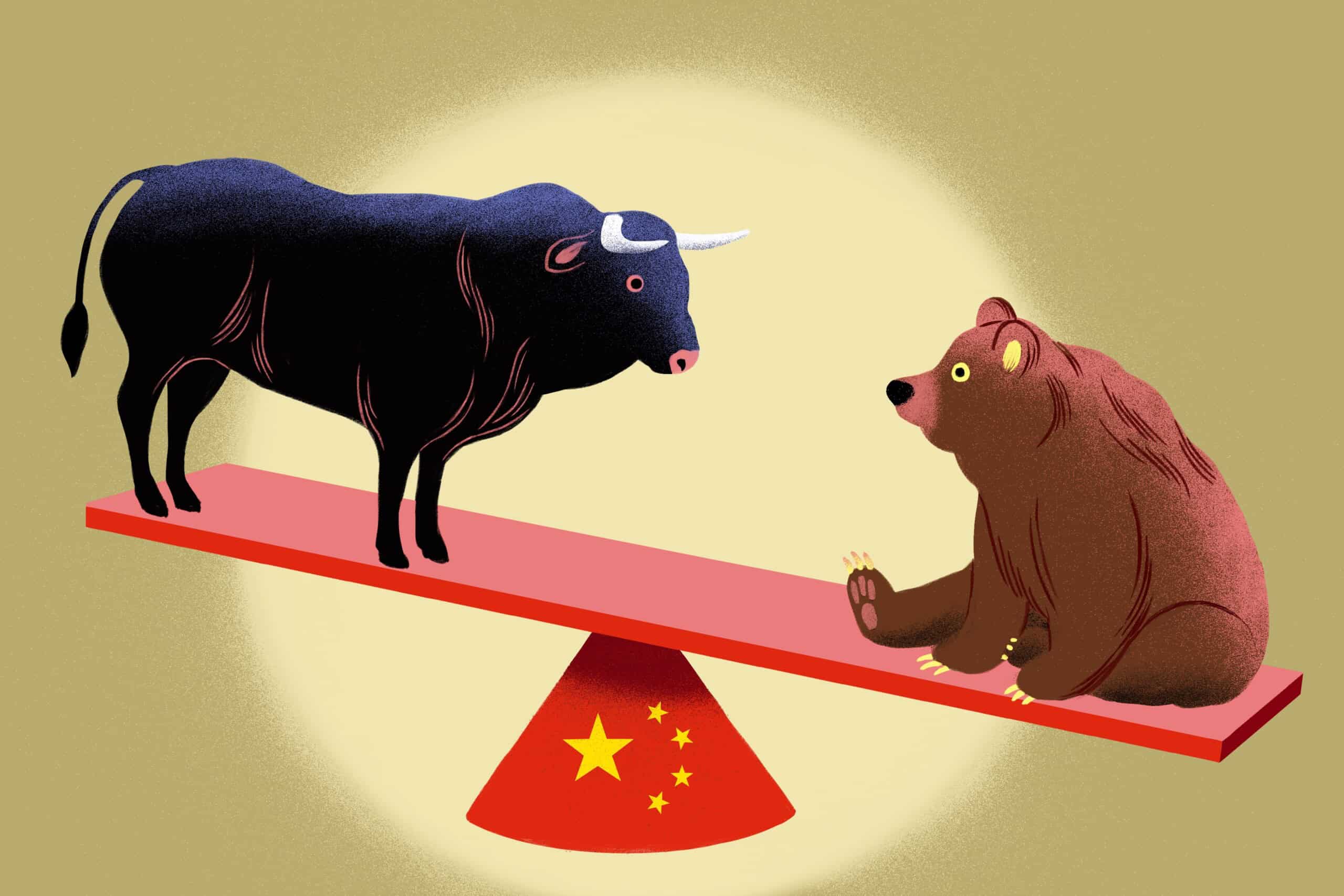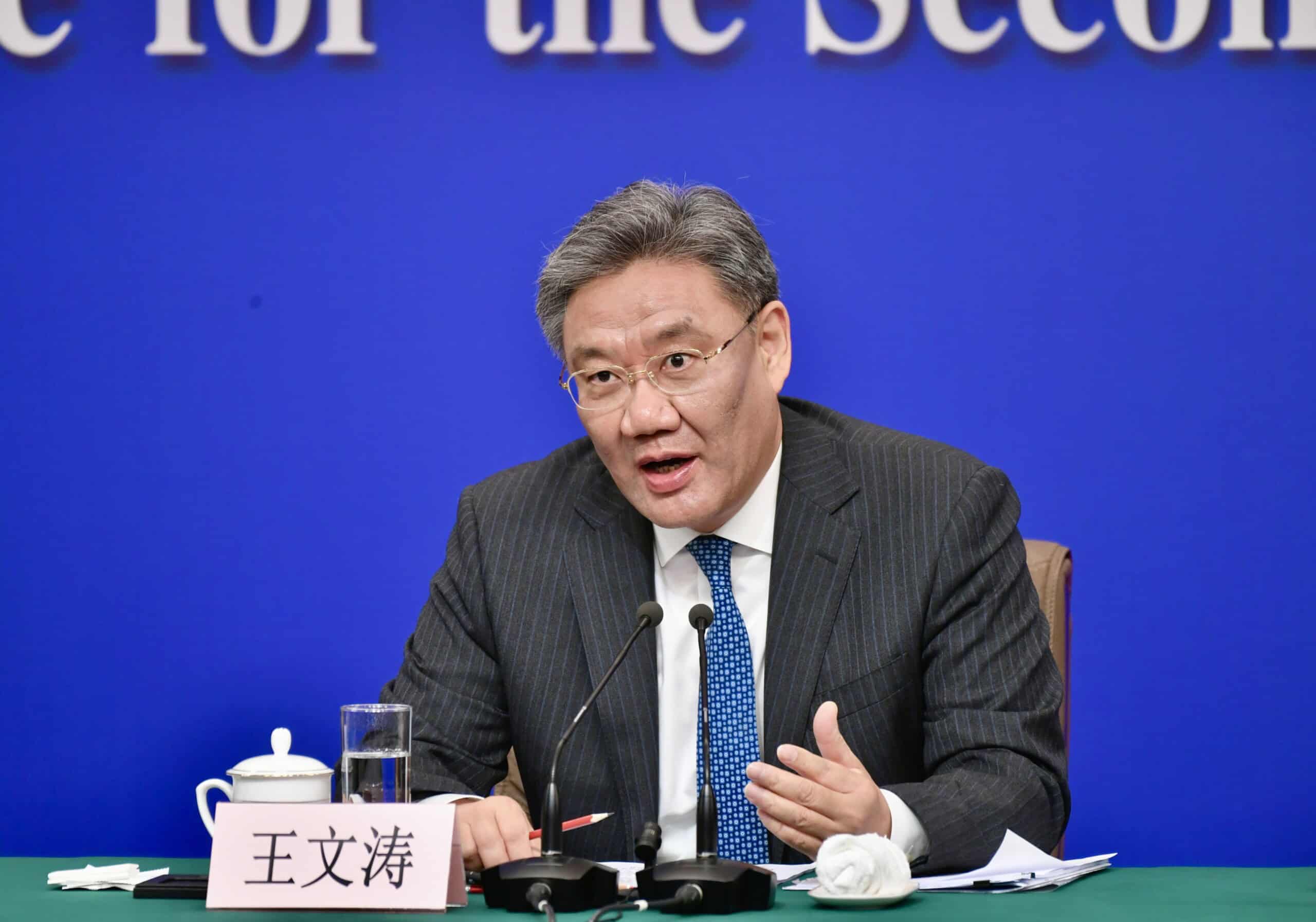
When Skydio, an American drone maker, was hit with Chinese sanctions over its sales to Taiwan in early October, the company tried to gird itself against potential fallout by moving its supply chains out of China. It didn’t move fast enough.
Within weeks, Skydio’s Chinese battery suppliers had cut the company off. By month’s end, its chief executive announced the company was rationing the batteries it supplies with its drones to customers, which include Ukraine’s military and the Taiwanese government.
Skydio CEO Adam Bry answers questions regarding China and the drone sector during a hearing, June 26, 2024. Credit: Select Committee on the CCP
For years, the threat of Chinese sanctions and export controls have hung over foreign businesses with ties to China, but they have largely remained just that — a threat. Increasingly however, China is wielding its sanctioning authority with greater impact.
It’s also sharpening its tools. The Ministry of Commerce last month revised export control rules to allow officials to take action against foreign entities that supply third parties with inputs that originate in China — replicating Washington’s favored tool of long-arm policing that has allowed it to hobble companies like Huawei.
For western governments, the fear is that China’s improved financial and trade controls could make it more effective in forcing foreign businesses into complying with Beijing’s priorities. The blow against Skydio is also a preview of the kinds of economic warfare Beijing might wage against the incoming Trump administration, which has pledged tougher policies against China.
“We’re entering a new phase of China’s willingness to target foreign companies with sanctions that actually bite,” says Kendra Schaefer, a partner at Trivium China, a consultancy. “While China has previously made symbolic and retaliatory shots across the bow which were not really intended to do anything, what Beijing is doing now is indicating it does have the capability to identify companies that have supply chain dependence on China and then whack them on the nose.”
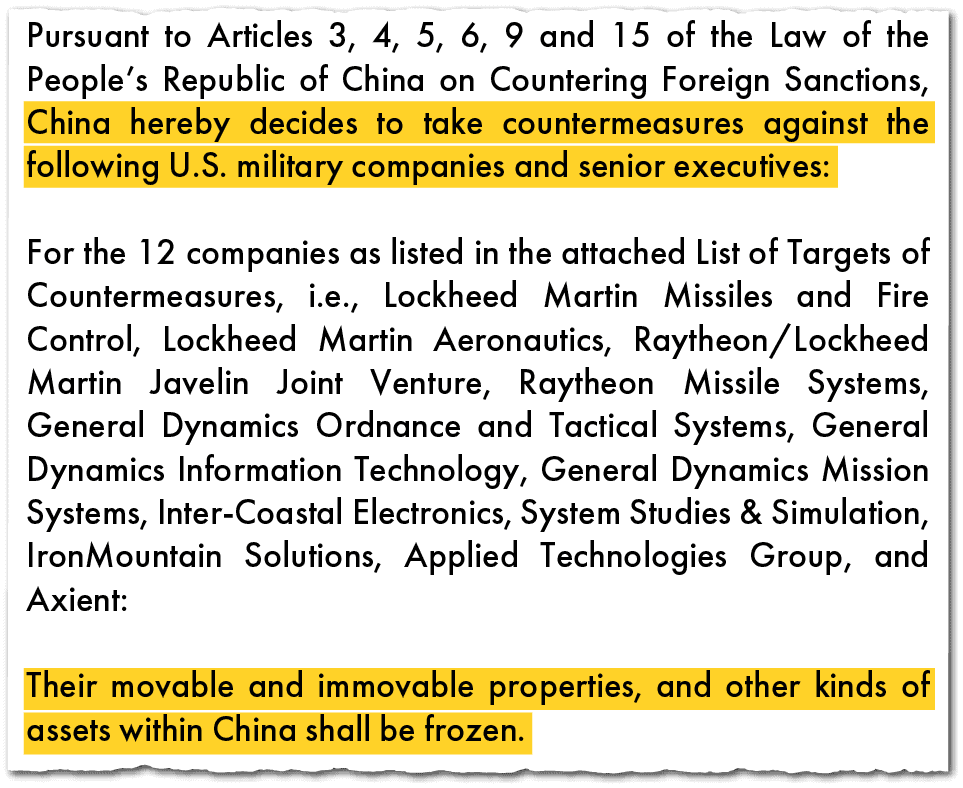
Since 2023, Beijing has imposed sanctions on 95 entities and individuals, according to OpenSanctions, a nonprofit that tracks new additions. Many of those listings are largely toothless: targets like Raytheon and Lockheed Martin, which were sanctioned by Beijing in February 2023 for selling weapons to Taiwan, have never had a presence in China. The limited international reach of the Chinese yuan means that cutting most people or companies out of its financial system has limited effect — a contrast with the power the U.S. government can exert by virtue of its ability to restrict access to the dollar-dominated global system.
A similar story has played out with the export controls China has announced on critical minerals. Beijing imposed a new licensing regime for gallium and germanium exports in July 2023, followed by graphite in October, in retaliation against the U.S.’s own export controls on high performance semiconductors to China. Exports plunged briefly after these moves, but subsequently rebounded to original numbers.
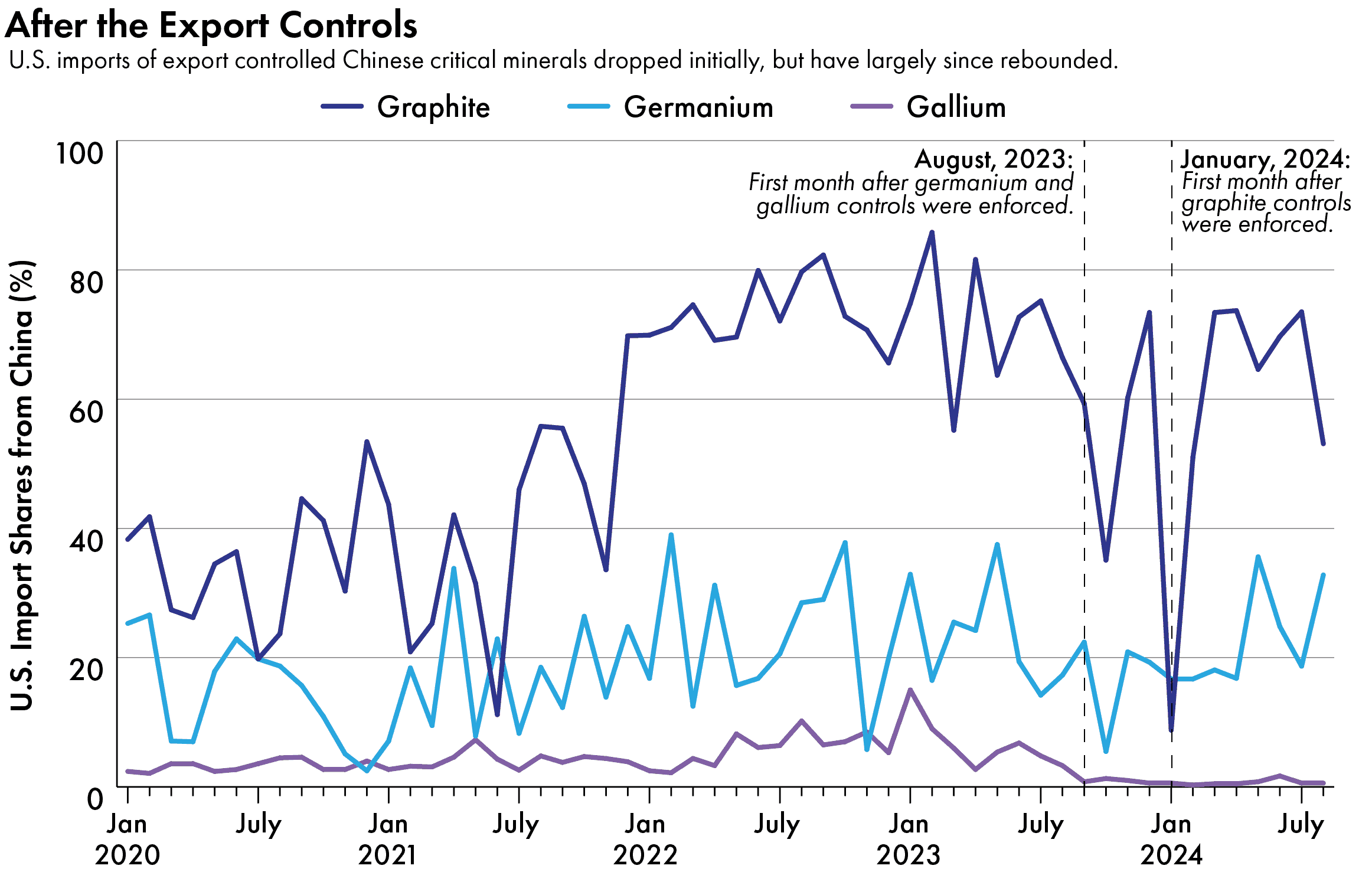
“You can think of [that] as a light blow as opposed to a haymaker,” says Cullen Hendrix, a senior fellow at the Petersen Institute of International Economics, a Washington, D.C. think tank.
Schaefer says the mild impact of China’s sanctions to date may have fostered some complacency among policymakers in Washington. But Beijing’s recent moves are a reminder it knows where companies’ vulnerabilities lie.
The Chinese are looking at what the U.S. is doing in terms of sanctions innovation… Now, it does seem like as we continue to use [sanctions and export controls], China is willing to do so too.
Nicholas Mulder, an assistant professor at Cornell University and author of The Economic Weapon: The Rise of Sanctions as a Tool of Modern War
First, in September, the Ministry of Commerce announced a probe into PVH Corp, the parent company of Calvin Klein, after it said it would no longer source cotton from Xinjiang. China has accused PVH of “suspected discriminatory measures” and of “violat[ing] market trading principles.”
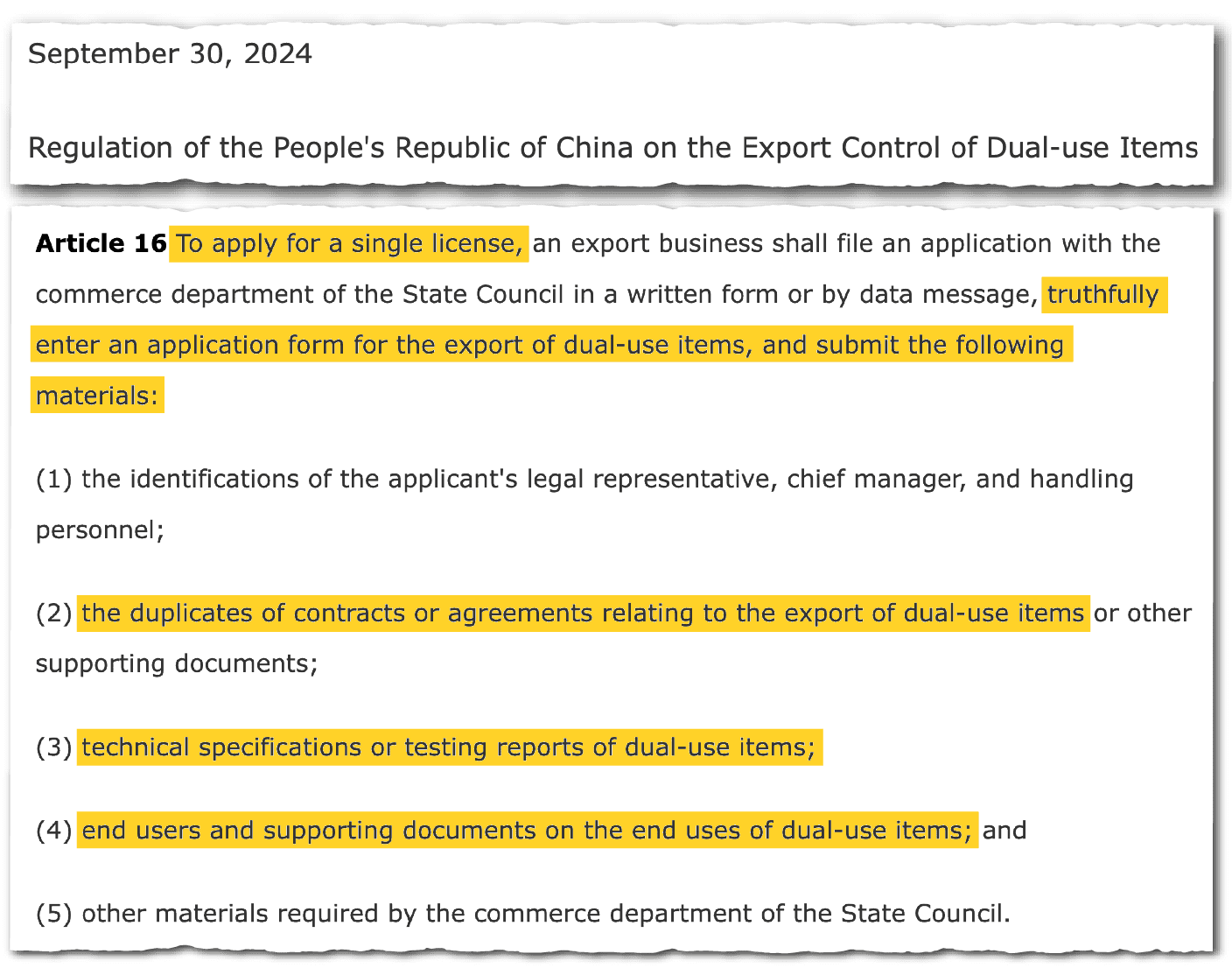
Then, in October, an influential think tank affiliated with the Cyberspace Administration of China published a lengthy criticism of Intel, calling for a security review of its chips. Intel makes more revenue from China than it does in the U.S.: the risk is that a cybersecurity probe could prompt Chinese customers to flee the company.
And while China has avoided shutting the spigot of critical minerals for now, it’s not ruling out doing so in a potentially more precise and damaging way. Under China’s export licensing rules, Chinese exporters must already submit detailed answers about the identity of foreign importers and end users.
“[That] provides Chinese producers with increased surveillance into the specific end uses and helps them map U.S. supply chains and how they’re developing,” says Hendrix. “That’s important commercial intelligence that could ostensibly be used to inform national security decisions and future export controls against the U.S.”

China has taken pages out of the U.S. playbook to design its latest sanctions. Under the Ministry of Commerce’s strengthened export control rules released last month, Chinese firms must get approval to export to foreign businesses on a new “Control List” akin to the U.S. Commerce Department’s Entity List.
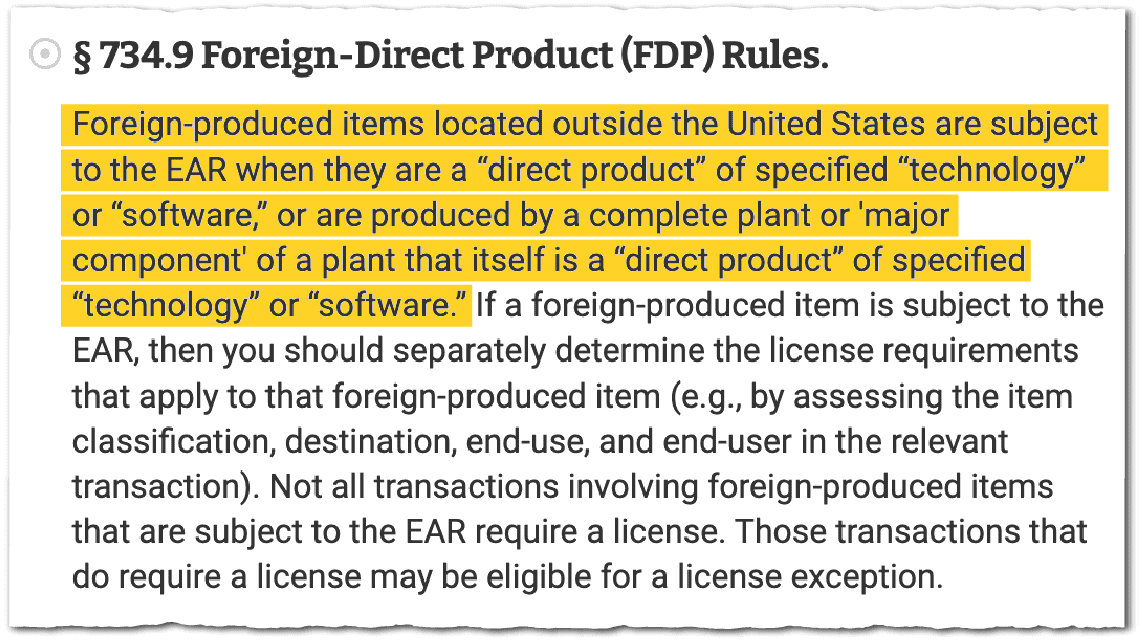
The new rules also allow China to prosecute foreign companies that supply goods to third parties if they contain Chinese inputs. That measure takes direct inspiration from Washington’s controversial “foreign direct product rule,” which allows it to regulate the sale of foreign-made products if they were produced using U.S. technology. Washington has used this rule it to stop foreign chipmakers from producing chips for Huawei.
“The Chinese are looking at what the U.S. is doing in terms of sanctions innovation,” says Nicholas Mulder, an assistant professor at Cornell University and author of The Economic Weapon: The Rise of Sanctions as a Tool of Modern War. “For a long time that was largely just a projection of our own fears and worries. Now, it does seem like as we continue to use [sanctions and export controls], China is willing to do so too.”
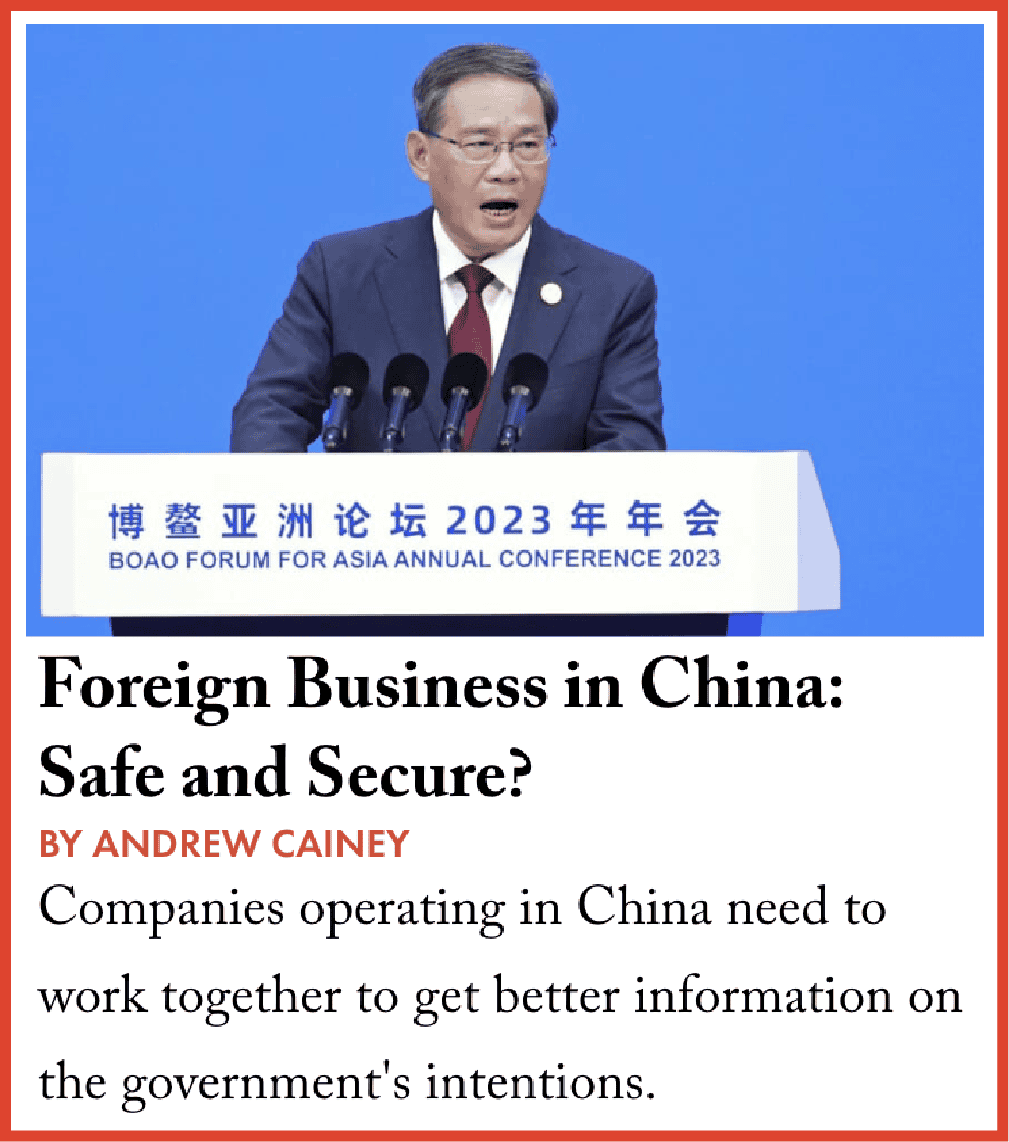
Besides reducing their dependencies on China, experts agree that there isn’t much that foreign businesses can do to steel themselves against being targeted by Beijing. Most companies have hewed to a simple strategy: lay low, privately cultivate relations in China, and hope you’re not picked next.
Given China’s broader economic priorities, some observers are skeptical that Beijing will fully make use of its sharper tools to the extent that Washington has in recent years.
“I remain unconvinced that China will get close to the level of economic coercion and statecraft of the U.S., for a very simple reason that it’s much more dependent on commerce with the rest of the world [than the U.S.],” says Mulder. “When you’re a commercial power of China’s magnitude, your interest is in making sure that everyone buys your stuff. That’s something that really runs against excessive use of these tools of economic statecraft.”

Eliot Chen is a Toronto-based staff writer at The Wire. Previously, he was a researcher at the Center for Strategic and International Studies’ Human Rights Initiative and MacroPolo. @eliotcxchen

